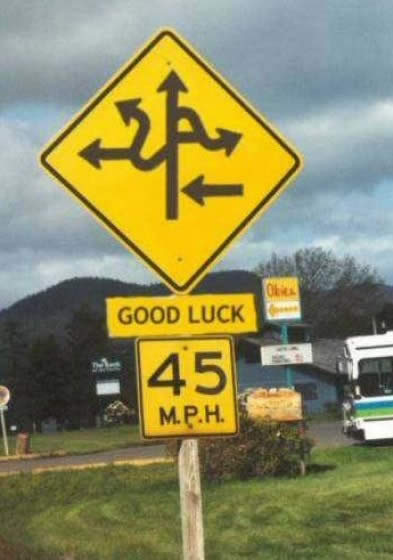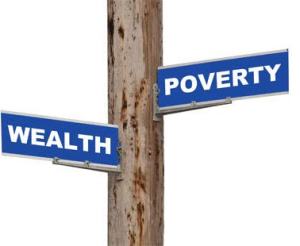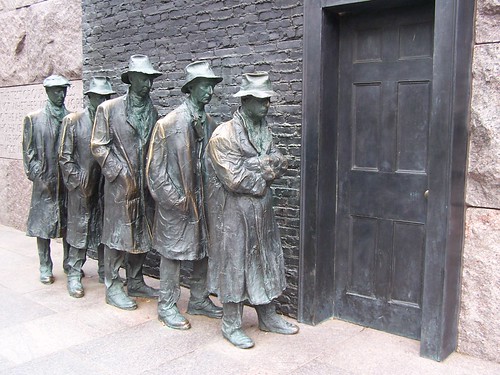Are you an “anawim”? Take this quiz to
find out:
1.
You win the lottery and get a million dollars—what would you do with it?
a. Take a trip around the world
b. Pay off what you owe to others
and give the rest away to those who also have needs.
c. Invest in your future
d. Get a big house for your family
and a few others you know.
2.Would
you ever find yourself homeless?
a. I’d never let myself get in such
a position
b. Too late! I’ve already been
there!
c. I try my best not to find myself
that way
d. Who knows where God would lead
me?
3.
How important is money in your life?
a. How could anyone live without
money?
b. Money is a useful tool, but I
don’t really need it
c. I need more of it! Now!
d. I wish I didn’t need it, but it’s
essential
4.
How do you feel about our society?
a. The world has never failed me
b. I wish God would take it away and
create a new one
c. It’s not perfect, but it’s the
best society anyone could ask for
d. It is deeply wrong, but it can be
fixed
5.
How much suffering have you experienced?
a. I know what I’m doing—I’ve always
avoided suffering
b. I’d love to start my life over
c. God’s always blessed me, I’ve never
experienced that much suffering
d. I’ve had rocky roads, but God has
helped me survive.
6.
In times of difficulty, how would you describe your relationship to God?
a. God isn’t involved in my life.
b. I cry out to God until He helps
me out.
c. I don’t pray much, but I know God
is there.
d. I see God as my comfort.
7.
What is the most important support in your life?
a. My regular check
b. My relationship with God
c. My family
d. My church
Answers
at the end of this post.
Mommy, what's an anawim?
We invent words all the time. Every sub-culture has its own vocabulary that
no one else understands. Some
sub-culture words enter into the mainstream, such as “dis” or “dysfunctional”
or “anti-disestablishmentarianism”, but most words remain obscure to all but a
small segment of the population. English
has the capacity of a million words, but we will typically only use 20,000 on
any kind of regular basis. Why so many
words? We do this because we have concepts that we use frequently, and so we
invent new words (or import words from other languages) that communicate
succinctly what we want to say. After
all, why say “the study of the end times” every time that subject comes up,
when you could just say “eschatology”? (Which begs the question as to why the
Russian language has reserved one of their most difficult-to-pronounce words for “hello”).
In
Hebrew there was an idea that was frequently used in Scripture, and supposedly
in everyday life, so that a new vocabulary word had to be invented. The idea went something like this—“You see,
there are these people, but they’re poor—or, well, most of them are
economically poor, but not all of them.
Well, actually, they are rejected by modern society, outcasts… well, not
always outcast, but they aren’t in
the mainstream, and they are looked down on.
And sometimes they’re just sick.
Or attacked. Anyway, it seems
like nobody likes them. But they are
righteous—um, well, righteous in a way, anyway.
As a group they seem to sin a lot—but they repent! Of their sin, that is. I mean, they really regret it and they do
what they can to stop the sin. But they
pray a lot. Not to be holy, because
these people aren’t holier-than-thou—uh uh, no way. No, they pray because they need to ask God
some pretty big requests. Like for their
basic survival. And to be delivered from
their enemies. And for justice. And instead of scrambling around working on
every plan to get them out of their troubles—like that would help, anyway—they
depend on God. Yeah, that’s who they
are.” That’s a mouthful.
So
who are these folks, exactly? Let’s get
organized:
- They are vulnerable
They are in a place that they are
exposed to difficulties. Perhaps they
are a part of a social group that is vulnerable, or they have chosen to expose
themselves to a hard life. Whatever the
case, difficulties often come their way because they are unable to fully
protect themselves.
- They are oppressed
Because they are open to
difficulties, there are some people who will take advantage of them. So, at one point or another, the anawim
experience theft, hatred, rejection, and sometimes violence.
- They have experienced poverty
They don’t have to be poor, even as
the long-suffering Job was actually wealthy.
But it is more likely that the anawim will be poor, and they certainly
have experienced poverty at one point or another in their lives. The anawim don’t have to have a low income,
but it is likely that they don’t have much in their accounts at any given
point.
- They have experienced the failure of worldly systems
They, because of their vulnerable
position, find themselves in a place where the world cannot help them. The world doesn’t set up its system of help
for these kinds of folks, and if the world does help a little, it is not enough
to pull them out of their difficulty.
The anawim has found that they can’t depend on their governments, their
families or their religious groups.
- They depend on God
Because the world can’t (or won’t)
help them, they have found that the only one who will be there for them is
God. And God has truly been there for
them. They have still suffered deeply,
but God has helped them survive in surprising ways.
- They live for God
Out of gratitude, they try their
best to live for God. They may not look
or act like saints all the time, but they are doing their best to live a right
life before God. And because they have
experienced oppression and poverty, they will try to never cause another to
experience such things, but do their best to be merciful.
In sum, these folks are the poor or outcast
who depend on God for their deliverance.
“Deliverance” doesn’t mean some spiritual transformation, but it means
that you’re in trouble and you need to get out of it. So the Hebrews had this idea, and because
they didn’t like the option of saying “outcast who depend on the Lord for
deliverance” every time they used the concept, they shortened it. The word is anawim. (This word will no
longer be italicized for convenience’s sake.
My convenience, that is.)
Yeah,
right, that’s the name of this site. Or
something similar to “anawim” anyway.
We’re going to be talking about them for a while, here. But you probably already got that idea.
The
word is used a lot in the Hebrew Scriptures.22 The root of it is used some 116 verses.23 It is translated as “poor” or “needy” or
“afflicted”. And when the New Testament
(in Greek) uses the words “poor” or “meek” or “humble” they are referring to
this concept. Forms of these Greek words
are used in the Greek Bible (Old and New Testaments) in some 329 verses.24 Anyway, you get the idea. It’s a busy word. This is no small idea in the Bible.
On
occasion you might hear about this idea.
In English theology you might hear the phrase “righteous poor” flitting
about. But it is never covered as a
major theme in theology. Nor is it often
mentioned by preachers, teachers, Bible Schools and their ilk. They’d rather talk about the other major
words of the Bible, such as “grace” (277 verses OT and NT use that word),
“predestination” (6 verses), or, “Trinity” (0 verses). But Jesus used this concept quite
frequently. It was very important for
his theology.
But,
before we get to Jesus, let’s see the answers to the quiz!
If
most of your answers are “a”:
You aren’t one of the Anawim at
all. You are self-reliant, and it’s
pretty much worked out for you. However,
God’s word warns that you will be heading for a fall—get ready for it!
If
most of your answers are “b”:
You are Anawim! You have suffered much in your life and
looked to God for help. Perhaps
sometimes He helped you, and sometimes He didn’t do as much as you wanted—But
God’s promise is that you will have another chance at life to make up for this
sucky one!
If
most of your answers are “c”:
You aren’t really anawim. You’ve had
some difficulties in your life, perhaps, but not enough that you’ve really had
to desperately seek God. Again,
difficulties will come—get your relationship with God in a place that will
prepare you for that coming trial!
If
most of your answers are “d”:
You are really close to being
anawim. You’ve had some difficulties,
and you want to do what is right before God.
But God alone—not the church, not your job, not your family—is the
answer to the problems in your life.
Depend only on Him and He will deliver you in times of trouble.
Notes:
- Let me
list some of the verses that include the term ana or anawim just in the Psalms:
“For the needy will not always be forgotten, Nor the hope of the afflicted
perish forever.” 9:18
“O LORD, You have heard the desire of the humble; You will strengthen their
heart, You will incline Your ear” 10:17
You save an afflicted people, But haughty eyes You abase. 18:27
“The afflicted will eat and be satisfied; Those who seek Him will praise
the LORD. Let your heart live forever! 22:27
He leads the humble in justice, And He teaches the humble His way. 25:9
This poor man cried, and the LORD heard him And saved him out of all his
trouble 34:6
But the humble will inherit the land And will delight themselves in
abundant prosperity. 37:11
Since I am afflicted and needy, Let the Lord be mindful of me. You are my
help and my deliverer; Do not delay, O my God. 40:17
May he judge Your people with righteousness And Your afflicted with
justice. 72:2
When God arose to judgment, To save all the humble of the earth. 76:9
If Your law had not been my delight, Then I would have perished in my
affliction 119:92
The LORD supports the afflicted; He brings down the wicked to the ground.
147:6
- Some of the more important places ana or anawim are used in the Hebrew Scriptures are: Genesis 29:32; 31:42; 41:52; Exodus 3:7; Exodus 22:24; Leviticus 19:10; Deuteronomy 15:11; 24:12, 14-15; I Samuel 1:11; II Samuel 22:28; Job 24:4, 9, 14; 29:12; 30:16; 36:6-8, 15, 21; Psalm 9:13, 19; 10:2, 9, 12; 12:6; 14:6; 22:25; 25:18; 31:8; 34:7; 35:10; 37:14; 68:11; 72:2, 4; 74:21; 82:3; 88:9; 102:1; 107:41(heck, the whole of Psalm 107—just read it!); 119:50, 92, 153; 140:12; Proverbs 3:34; 14:21; 15:15; 16:19; 22:22-23; 31:9; 31:20; Isaiah 3:14-15; 10:2; 41:17; 48:10; 49:13; 51:21-23; 54:11; 58:7; 66:2; Jeremiah 22:16; Ezekiel 16:49: 22:29-30; Amos 8:4-7; Zephaniah 3:12; Zechariah 9:9.
- The term ptoxos is used for “poor” in the Greek, both in the translations from the Hebrew, as well as in the New Testament. The Greek work tapeinosis is used for “affliction”, and the term tapeinos is used for “humble” or “meek”. These are the words usually used to translate ana or anawim in Hebrew. Let me give some of the New Testament passages (I don’t know why I say “let me” when I’m going to do it, whether you like it or not): Matthew 5:3-5; 11:5, 29; 19:21; Mark 10:21; 12:42-44; Luke 1:48,52; 4:8; 6:20;14:13, 21; 16:22; 19:8; Acts 8:33; Romans 12:16; II Corinthians 7:6; Philippians 3:21; James 1:9, 10; 2:1-6; I Peter 5:5; Revelation 3:17.



















